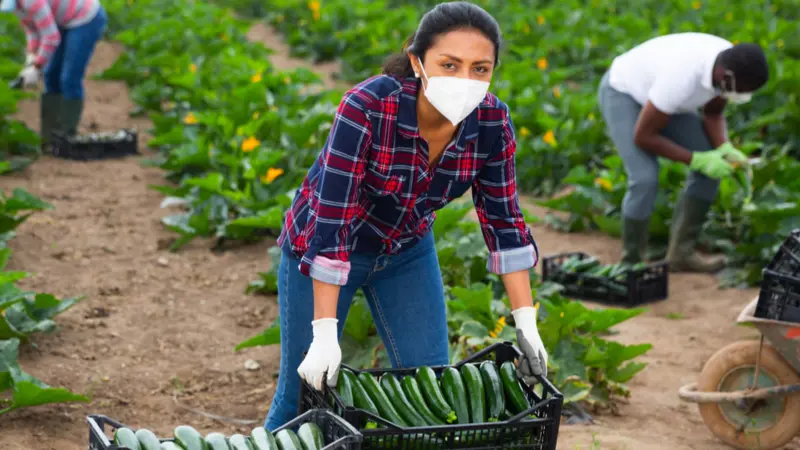

WELLthier Living and Aging

WELLthier Living and Aging
COVID-19 Opens the Door to Opportunity for Organic Farms
One bright spot during the COVID-19 pandemic has been the growth in demand for organic farm products. Since March nearly every organic farming category has experienced sales gains compared to last year. Pushing the demand is a public that is increasingly conscious of safety and health.
While the pandemic has exposed frailties in industrial farming and created supply chain disruptions, many organic farmers have succeeded in adapting to the new normal of restrictions and customer needs.
Mark McAfee, an organic dairy farmer in Fresno, California, says concern with immune system health has drawn consumers to raw milk for its probiotic richness. He says he has ”never had better sales or more enthusiasm” at his farm, Organic Pastures Dairy.
The more you can just embrace the new opportunities, the better it’s going to work out.”
Concerned about who is touching their food, customers are increasingly interested in direct-to-consumer sales, such as CSAs. PrairiErth Farm in Atlanta, Illinois, has expanded its 150-member CSA to 300, with a waiting list of 100. Dave Bishop of PrairiErth calls the current situation “a once-in-a-lifetime opportunity”—an unexpected chance to reevaluate the current food system and potentially improve it.
Resilience has been a trademark of the organic operations that have thrived during these uncertain times. Mt. Folly Farm in Winchester, Kentucky, was forced to shut down its farm-to-table restaurant in mid-March due to COVID restrictions. They immediately set up a farm grocery store to sell their organic meat and grains. “We took out all the tables, put in coolers, and started selling beef and early spring crops,” says Laura Freeman of Mt. Folly.
“Be nimble,” says Ken Kimes of New Native Farm in Santa Cruz, California, which sells microgreens, sprouts, and mushrooms. “The more you can just embrace the new opportunities, the better it’s going to work out.”
Full Belly Farm in Guinda, California, has thrived during the pandemic—particularly its CSA, which has a waiting list of over 2000 people. Co-owner Judith Redmond credits their success to a diverse marketing structure: “The challenge was to reinvent the way we farmed, marketed, did farmer’s markets, harvested vegetables—everything.”
Mark McAfee says the pandemic has been a “national stress test” on the food system, and the results are in. Large industrial systems have failed, while local organic systems have thrived, says McAfee.
REFERENCES
Cohen, N. (2020, July 14). Organic farms adapting for Covid-19. Organic Farmers Association. Retrieved from https://rodaleinstitute.org/blog/organic-farms-adapting-for-covid-19/


 By
By







